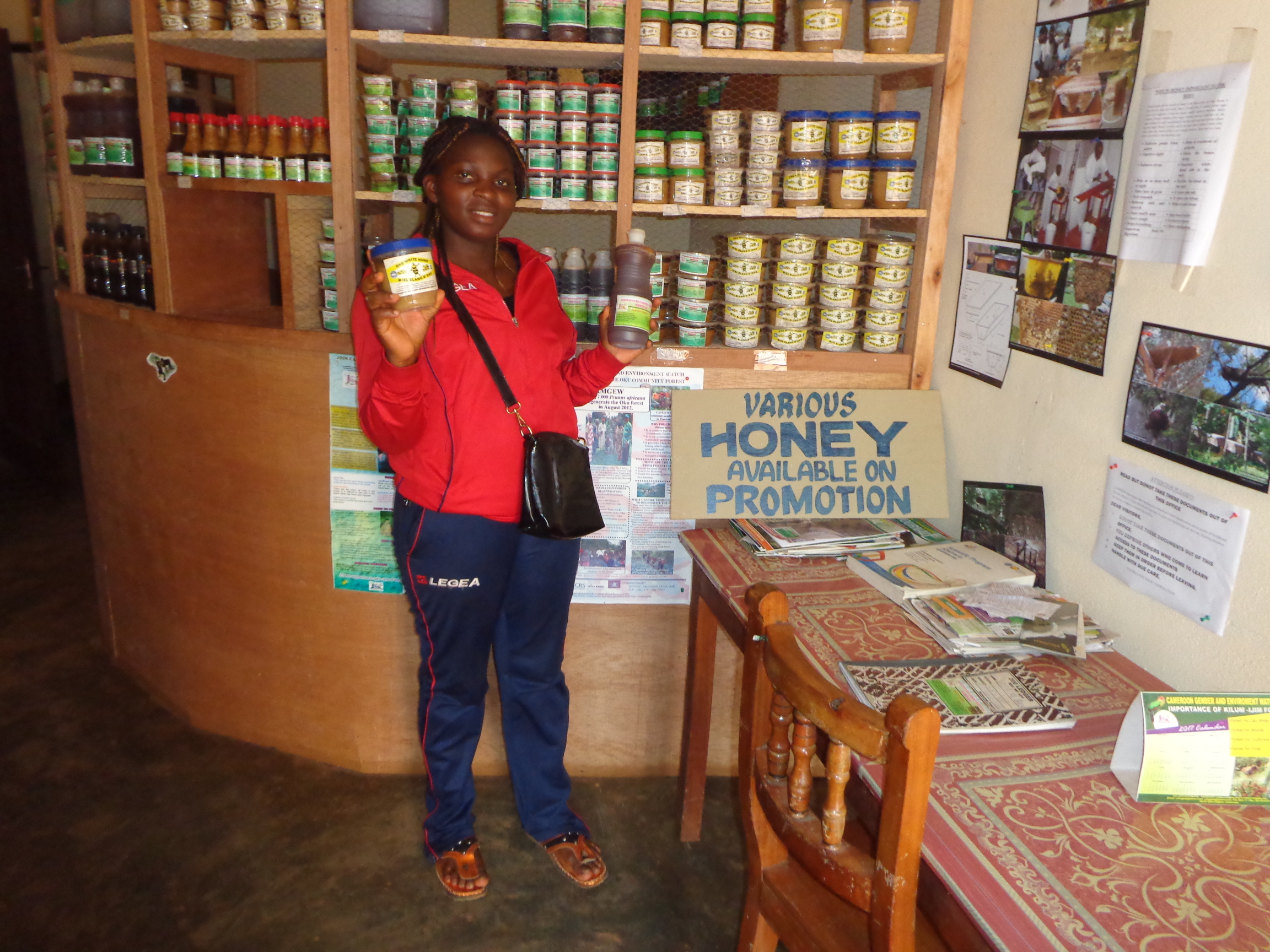

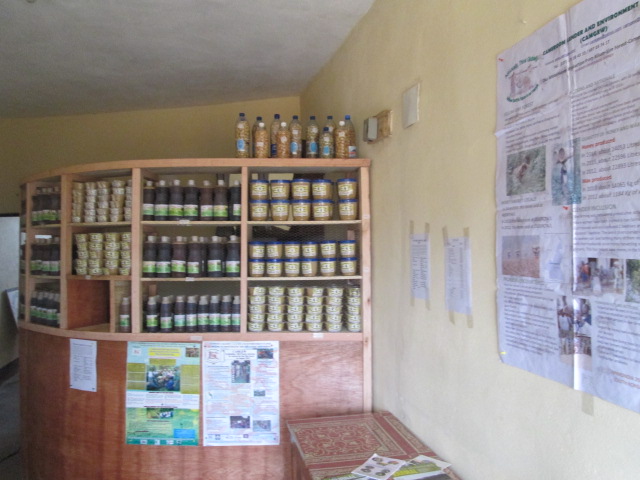
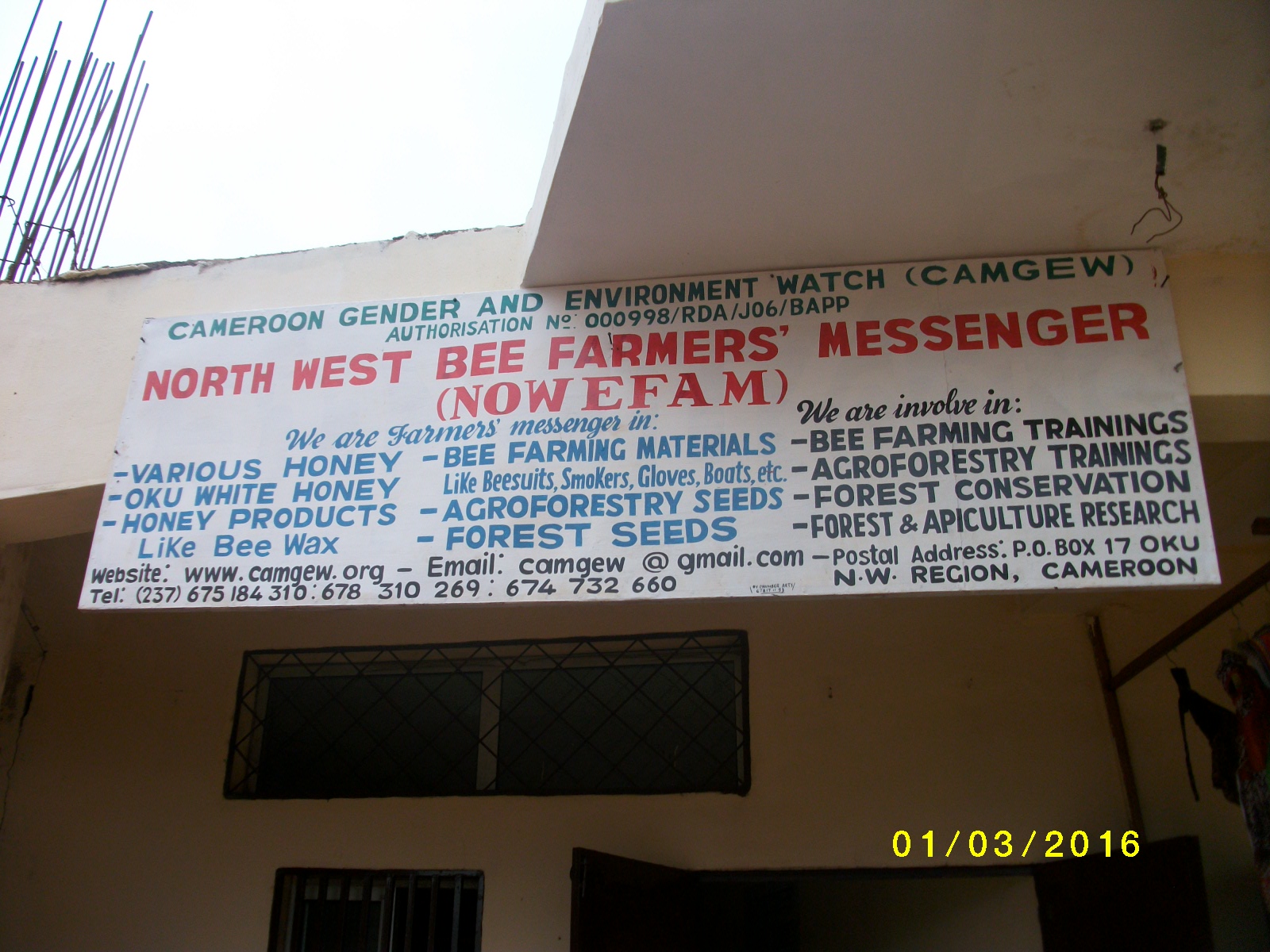
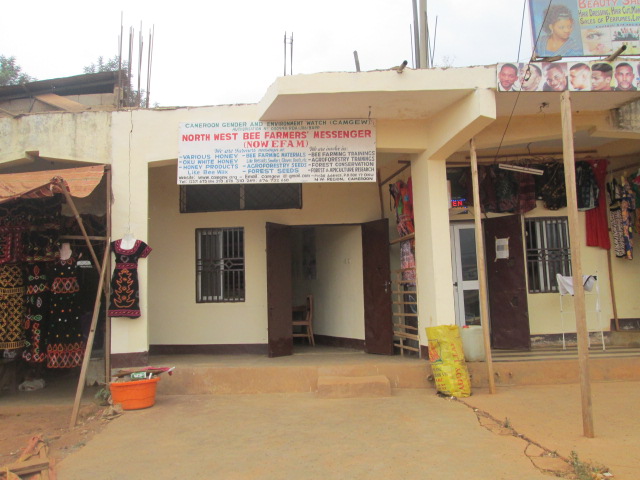
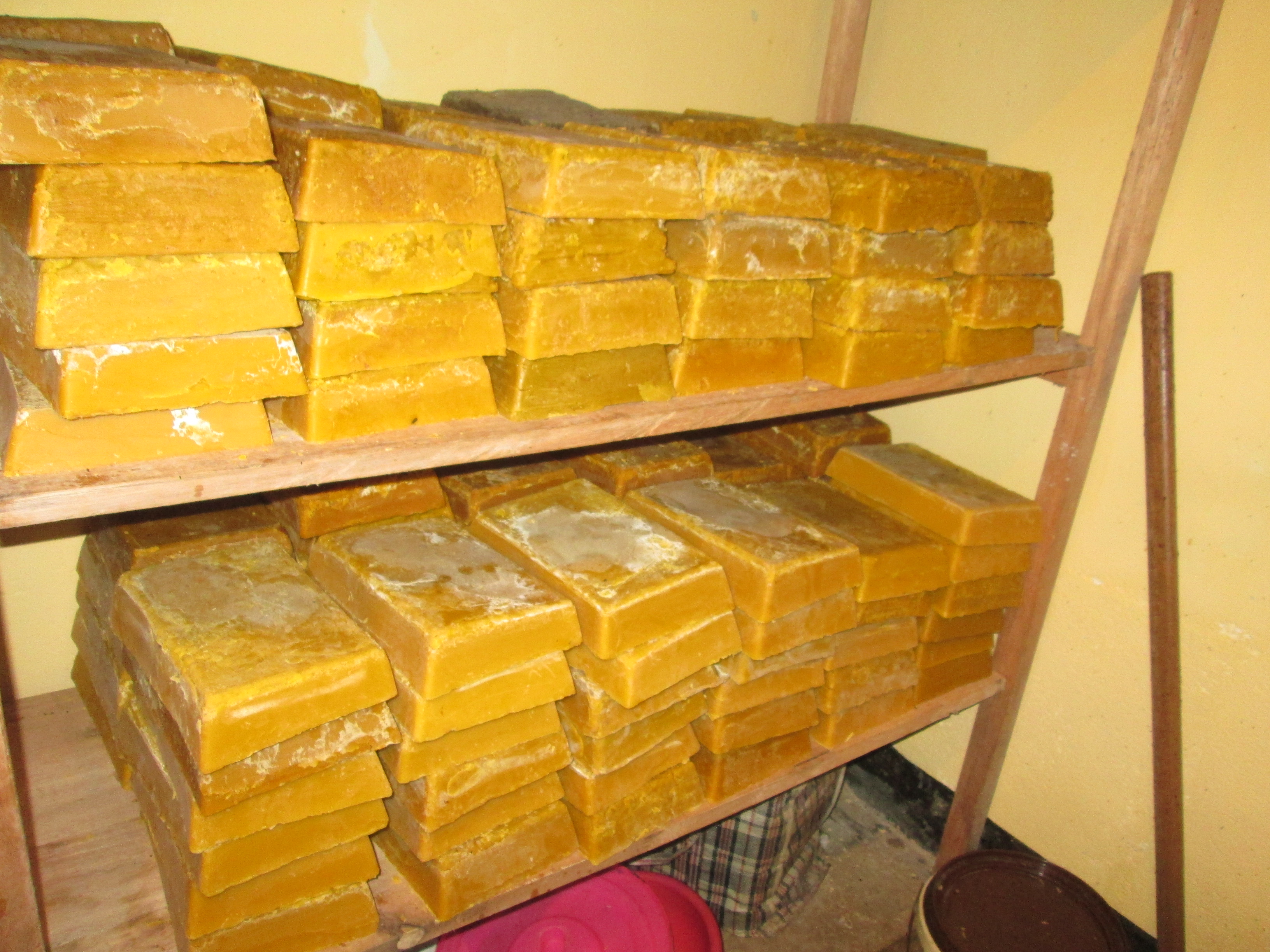
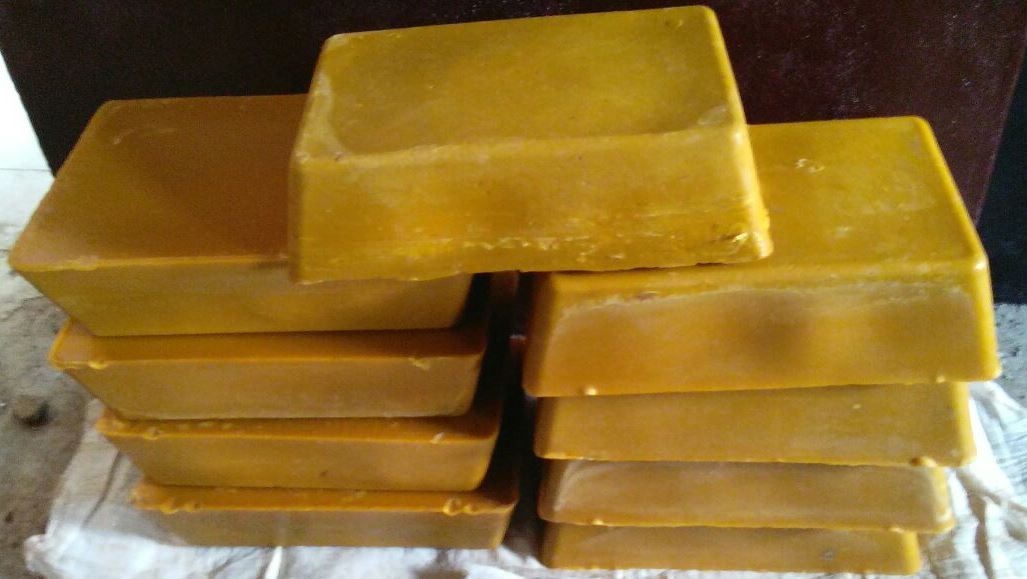
En utilisant l'apiculture comme outil de conservation de la forêt de Kilum-Ijim, CAMGEW a découvert que les apiculteurs produisaient du miel dans la forêt et aux alentours, mais qu'ils n'avaient jamais trouvé de marché pour leur miel et leur cire d'abeille. Notre travail de conservation pourrait être un échec si CAMGEW ne trouvait pas de marché pour son miel et sa cire d'abeille. Les apiculteurs peuvent désormais protéger la forêt contre les feux de brousse grâce aux ruches qu'ils ont trouvées dans la forêt. CAMGEW a dû acheter son miel et le transporter jusqu'à la ville de Bamenda pour le vendre. CAMGEW a créé un magasin de miel à Bamenda appelé NORTH WEST BEE FARMERS MESSENGER (NOWEFAM) pour vendre du miel blanc d'Oku, du miel brun, du miel de bourdon, des combinaisons d'abeilles fabriquées dans notre école professionnelle, des enfumoirs d'abeilles fabriqués localement, des ruches fabriquées localement, de la cire d'abeille et des bougies fabriquées à partir de cire d'abeille. Les produits de la boutique sont disponibles en différentes quantités et à différents prix. La boutique propose du café et du thé au miel, ainsi que des en-cas. Le magasin vend également d'autres articles faits maison, comme des objets d'artisanat. C'est aussi un centre de ressources pour les apiculteurs et les futurs apiculteurs, qui y trouvent des documents sur l'apiculture. La cire d'abeille et le miel sont vendus au niveau national et international. La commercialisation est un défi, mais nous travaillons dur et l'avenir est prometteur.
La miellerie CAMGEW se trouve en ville : Les coopératives vendent le miel autour de la zone forestière et CAMGEW ne les aide qu'à commercialiser leurs produits dans les zones qu'elles ne peuvent pas atteindre, afin d'éviter la concurrence.
De nombreuses personnes recherchent du miel produit autour de cette zone forestière, mais en raison de la distance et des problèmes de communication, elles ne peuvent pas y accéder. Le magasin de miel en ville leur facilite l'accès à ce miel.
Le processus d'exportation de la cire d'abeille et du miel est compliqué pour les coopératives et nécessite une communication constante, ce qui est difficile pour la population locale.
Il faut continuer à travailler pour développer la chaîne de valeur du miel blanc d'Oku afin de créer plus d'emplois et de revenus et de préserver la forêt.
La gestion d'une miellerie en tant qu'organisation caritative nécessite des compétences en marketing.
La miellerie est appréciée, mais elle nécessite du temps et des investissements, ce que les organisations caritatives n'ont jamais pu faire.
Posséder une miellerie est un nouveau modèle car les ONG doivent commencer à penser à collecter des fonds pour couvrir certains coûts plutôt que de dépendre d'un financement externe.
CAMGEW travaille avec Man and Nature France pour développer les chaînes de valeur des produits forestiers afin de créer des emplois et des revenus pour les populations forestières et d'aider les ONG à mieux gérer les forêts. Les résultats sont étonnants.
Il existe de nombreux bons produits naturels qui sont bien emballés et analysés en laboratoire afin de déterminer leur valeur pour la santé, l'environnement, les finances et la manière dont ils peuvent contribuer à la réduction de la pauvreté.
CAMGEW-Honeyshop est une grande innovation et une fois qu'il fonctionnera, nous prévoyons de le convertir en une entreprise sociale légale pour aider à collecter des fonds pour CAMGEW.